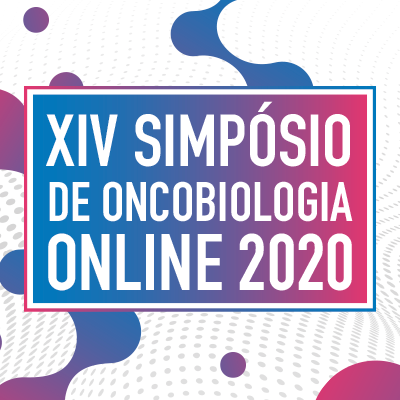Proceedings of Oncobiology Symposiums
Proceedings of XIV Oncobiology Symposium
CHARACTERIZATION OF MOLECULAR MECHANISM RESPONSIBLE FOR FLT3 GENE OVEREXPRESSION IN ACUTE LEUKEMIAS
How to cite this paper?
To cite this paper use one of the standards below:
How to cite this paper?
INTRODUCTION AND OBJECTIVE: FLT3 overexpression is a recurrent alteration in acute leukemias (ALs), which can lead to the constitutive activation of its tyrosine kinase receptor by a ligand-independent mechanism, resulting in increased cell proliferation, reduced apoptosis, and inhibition of cell differentiation. Over time, many studies have associated this alteration with the presence of activating mutations in FLT3, which is considered the main cause of transcriptional dysregulation of this gene. However, many patients with FLT3 overexpression do not have these mutations, suggesting that there are other mechanisms, still unknown, responsible for this alteration. In this context, the integration of several omics data has enabled the identification of enhancers regions associated with molecular alterations leading to deregulation of the expression of several proto-oncogenes. Thus, we hypothesized that the activation mechanism through the neomorphic enhancers or super-enhancers may be responsible for FLT3 overexpression in a portion of AL cases. Therefore, we aim to search for new molecular mechanisms responsible for FLT3 gene overexpression in ALs. MATERIAL AND METHOD: For this purpose, we characterized a panel of AML, B-ALL, and T-ALL cell lines according to gene expression levels and the presence of molecular alterations in FLT3 using data available on the CCLE website. Subsequently, we used ChIP-seq data for H3K27ac, a classic histone modification of transcriptionally active regions, of leukemia cell lines available on the GEO repository to evaluate potential enhancer regions associated with FLT3 overexpression. In parallel, we also evaluated SNVs and indels, in coding and non-coding regions, associated with FLT3 overexpression by WGS/WES data (available on the TARGET database) from AML, B-ALL, and T-ALL patient samples. RESULTS AND CONCLUSION: The cell lines SKM-1 (AML), REH, 697, RS4;11 (B-ALL), and PF-382 (T-ALL) showed FLT3 overexpression without activating mutation or amplification. Upon valuation of H3K27ac ChIP-seq data, we found that about 25% of the active enhancer regions identified in these cell lines are specific to the FLT3 overexpression without the presence of a known mechanism. This result was obtained when comparing with other cell lines separated into a normal (non-leukemic) group, a group with overexpression and mutation in FLT3, and a group with normal or reduced expression. In addition, we identified through differential analysis 754 potential regions of super-enhancers in AML, 14 in B-ALL, and 59 in T-ALL associated with FLT3 overexpression. Besides that, we identified 23 alterations associated with FLT3 overexpression in patient samples. Therefore, our data show the presence of potential neomorphic enhancers and super-enhancers regions associated with FLT3 overexpression, however, further analyzes are required to confirm these initial findings. Subsequently, we intend to validate these findings through in vitro assays.
Perguntas
Danielly Ferraz da Costa
Prezada Caroline,
achei seu resumo super interessante, mas não consigo acessar o poster para ver os resultados. Quando faço download do arquivo, baixo um PDF em branco (pode ter havido algum problema no upload). Você conseguiria entrar em contato com a comissão para saber se pode enviar novamente?
Obrigada!
Atenciosamente,
Danielly Ferraz.
- 2 answers
Não consigo visualizar o pôster
Anneliese Fortuna de Azevedo Freire da Costa
Olá, Caroline!
Também não consegui visualizar o pôster. Espero que consiga resolver o problmema! Olharei mais tarde novamente.
- 1 answer
Caroline Poubel
Olá, Anneliese. Já entrei em contato com a comissão para tentarmos resolver esse problema. Agradeço seu contato! E volte sim, será um prazer receber seus comentários e dúvidas para o trabalho. Obrigada!
- 1 Division of Clinical Research, Instituto Nacional de Câncer José Alencar Gomes da Silva (INCA), Rio de Janeiro, Brazil
- 2 Division of Clinical Research / Research Centre / INCa (Instituto Nacional de Câncer)
- 3 Research Centre, Instituto Nacional de Câncer - INCA / INCA
- 4 Pesquisa Clínica / INSTITUTO NACIONAL DE CANCER / Instituto Nacional de Câncer
- 5 Bioinformatics and Computational Biology Laboratory, Research Centre / Instituto Nacional de Câncer – INCA, Rio de Janeiro, RJ, Brazil / Instituto Nacional de Câncer
- Molecular Biology
Streamline your Scholarly Event
With nearly 200,000 papers published, Galoá empowers scholars to share and discover cutting-edge research through our streamlined and accessible academic publishing platform.
Learn more about our products:
How to cite this proceedings?
This proceedings is identified by a DOI , for use in citations or bibliographic references. Attention: this is not a DOI for the paper and as such cannot be used in Lattes to identify a particular work.
Check the link "How to cite" in the paper's page, to see how to properly cite the paper


Caroline Poubel
Olá Danielly, infelizmente está dando erro mesmo. Já entrei em contato com a comissão e estão tentando resolver. Muito obrigada por seu contato!
Danielly Ferraz da Costa
Obrigada!